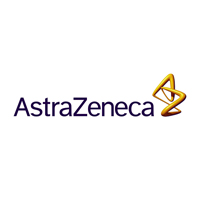AstraZeneca PLC (LON:AZN) and Merck & Co., Inc., Kenilworth, NJ, US (known as MSD outside the US and Canada) today announced that the European Medicines Agency has granted orphan designation to selumetinib, a MEK 1/2 inhibitor, for the treatment of neurofibromatosis type 1 (NF1).
NF1 is an incurable genetic condition that affects one in 3,000 newborns worldwide.1,2 The severity of signs and symptoms associated with NF1 can be highly variable, are often mild-to-moderate and may include skin, nerve and skeletal manifestations. Plexiform neurofibromas (PNs) are benign tumours on nerve sheaths that develop in 20-50% of patients, and as they continue to increase in number and size, cause moderate-to-severe morbidities such as pain, motor dysfunction and disfigurement.
Sean Bohen, Executive Vice President, Global Medicines Development and Chief Medical Officer at AstraZeneca, said: “There is no cure for NF1, a life-long and devastating condition, and current treatment choices for these patients are very limited. The granting of an orphan designation is a positive step forward for children with NF1 and their families.”
Roy Baynes, Senior Vice President and Head of Global Clinical Development, Chief Medical Officer, MSD Research Laboratories said: “NF1 is a relatively rare disease, but can lead to life-threatening complications in those affected by it. This underscores the importance of this collaborative effort between MSD and our partner AstraZeneca to help patients impacted by this debilitating genetic condition.”
The potential benefit of selumetinib in NF1 is being explored in the Phase I/II SPRINT trial in paediatric patients with inoperable NF1-related PNs. Select findings were presented recently at the 2018 American Society of Clinical Oncology Annual Meeting in Chicago by the principal investigators at the National Cancer Institute. Full results are expected later in 2018.
Orphan designation is a status assigned to a medicine intended for use in rare diseases. To be granted orphan status by the EMA, a medicine must be intended for the treatment, prevention or diagnosis of a disease that is seriously debilitating/life threatening and has a prevalence of up to five in 10,000 in the European Union. Additionally, the intended medicine must aim to provide significant benefit to those affected by the condition. Orphan designation is conferred following a positive opinion by the EMA’s Committee for Orphan Medicinal Products. Selumetinib was granted Orphan Drug Designation (ODD) by the US Food and Drug Administration (FDA) for the treatment of NF1 in February 2018.
About selumetinib
Selumetinib is an MEK 1/2 inhibitor and potential new medicine licensed by AstraZeneca from Array BioPharma Inc. in 2003. AstraZeneca and Merck & Co., Inc., Kenilworth, NJ, US entered a co-development and co-commercialisation agreement for selumetinib in 2017.
The NF1 gene provides instructions for making a protein called neurofibromin, which negatively regulates the RAS/MAPK pathway, helping to control cell growth, differentiation and survival. Mutations in the NF1 gene may result in dysregulations in RAS/RAF/MEK/ERK signalling, which can cause cells to grow, divide and copy themselves in an uncontrolled manner, and may result in tumour growth. Selumetinib inhibits the MEK enzyme in this pathway, potentially leading to inhibition of tumour growth. It is also being explored as a monotherapy and in combination with other treatments in other ongoing trials.
About neurofibromatosis type 1 (NF1)
NF1 is caused by a spontaneous or inherited mutation in the NF1 gene and affects approximately one in 3,000 births. The disease is associated with many symptoms, including soft lumps on and under the skin (subcutaneous neurofibromas), skin pigmentation (cafe au lait spots) and, in 20-50% of patients, benign tumours on the nerve sheaths (plexiform neurofibromas). These plexiform neurofibromas can cause morbidities such as pain, motor dysfunction and disfigurement.
People with NF1 may experience a number of other complications such as learning difficulties, visual impairment, twisting and curvature of the spine, high blood pressure, and epilepsy. NF1 also increases a person’s risk of developing other cancers, including malignant brain and peripheral nerve sheath tumours, and leukaemia. Symptoms begin during early childhood, with varying degrees of severity, and can reduce life expectancy by up to 15 years.3
About the AstraZeneca and MSD Strategic Oncology Collaboration
In July 2017, AstraZeneca and Merck & Co., Inc., Kenilworth, NJ, US, known as MSD outside the United States and Canada, announced a global strategic oncology collaboration to co-develop and co-commercialise Lynparza, the world’s first PARP inhibitor and potential new medicine selumetinib, a MEK inhibitor, for multiple cancer types. Working together, the companies will develop Lynparza and selumetinib in combination with other potential new medicines and as monotherapies. Independently, the companies will develop Lynparza and selumetinib in combination with their respective PD-L1 and PD-1 medicines.
About AstraZeneca in Oncology
AstraZeneca has a deep-rooted heritage in Oncology and offers a quickly-growing portfolio of new medicines that has the potential to transform patients’ lives and the Company’s future. With at least six new medicines to be launched between 2014 and 2020, and a broad pipeline of small molecules and biologics in development, we are committed to advance New Oncology as one of AstraZeneca’s five Growth Platforms focused on lung, ovarian, breast and blood cancers. In addition to our core capabilities, we actively pursue innovative partnerships and investments that accelerate the delivery of our strategy, as illustrated by our investment in Acerta Pharma in haematology.
By harnessing the power of four scientific platforms – Immuno-Oncology, Tumour Drivers and Resistance, DNA Damage Response and Antibody Drug Conjugates – and by championing the development of personalised combinations, AstraZeneca has the vision to redefine cancer treatment and one day eliminate cancer as a cause of death.
About AstraZeneca
AstraZeneca is a global, science-led biopharmaceutical company that focuses on the discovery, development and commercialisation of prescription medicines, primarily for the treatment of diseases in three therapy areas – Oncology, Cardiovascular, Renal & Metabolism and Respiratory. AstraZeneca operates in over 100 countries and its innovative medicines are used by millions of patients worldwide.








































